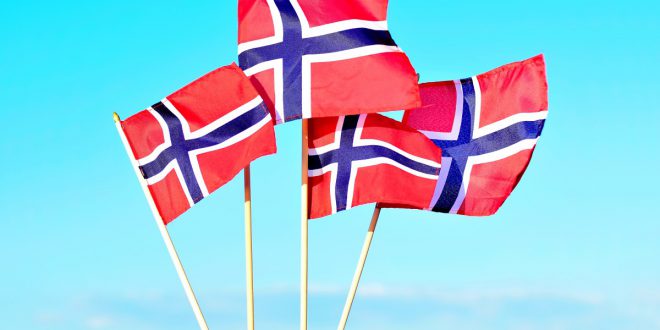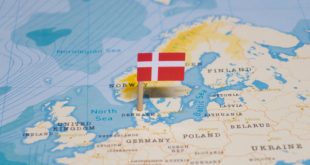Opening the week, industry strategic consultancy Regulus Partners offers its insight into reviews to the UK gambling policy, changes to the Belgian advertising mandate, and Norway’s proposed maximum loss limits.
UK: in Parliament – Watson keeps powder dry in rain-swept Brighton
Britain’s ongoing political and constitutional crisis finally swept petty discourse on gambling policy aside this week – but only temporarily, it seems.
The Labour Party’s Deputy Leader, Tom Watson (Lab, West Bromwich East) had been expected to include gambling matters within his speech to the party conference in Brighton on Tuesday – but amidst the Government’s defeat in the Supreme Court and ongoing division within Watson’s own party on the matter of Brexit, he wisely decided to wait for fairer weather.
Watson did attend a conference fringe event on gambling reform – alongside Carolyn Harris (Lab, Swansea East) and the gambling activist and political pundit Matt Zarb-Cousin. Reports indicate that the session was primarily concerned with grey areas of gambling legislation, such as ‘loot boxes’ in video games – but familiar refrains around the immediate need for a safer gambling levy and the “evil” of industry executives (the latter from audience members rather than panellists) also received an airing.
The unexpected return of Parliament in the middle of conference season prompted another Parliamentary Question from Watson, who asked when HM Treasury’s planned five-year review of the effect of remote gaming duty would be forthcoming (it is due this year). While Mr Watson’s question is entirely reasonable we would not advise that he hold his breath given the lousy record that HM Government (of all political hues) has on reviewing matters of gambling policy.
The DCMS committed to conducting an evaluation of casino reforms (due from 2014) but this has never come to pass; it has carried out just two triennial reviews in the 12 years since the passing of the Gambling Act; and recommendations made in the Budd Report for reviews in 2006 (children and gambling), 2011 (gambling policy) were both ignored.
With Parliament sitting once more, gambling debate will swiftly resume. On Monday, the alignment with the rest of the UK of Northern Ireland’s devolved gambling legislation will be debated in the House of Commons. Meanwhile, a number of gambling-related fringe events at the Conservative Party conference in Manchester next week (e.g. Action on Addiction’s session on ‘Everyone knows someone affected by addiction. Where do we go from here for families and children?’) may lose impact if minister and backbenchers feel the pull of London.
Safer gambling – Reaching a Tipping point on loss limits?
Norway’s horseracing and betting monopoly Norsk Rikstoto (‘NR’) has recommended that it follows sister-monopoly Norsk Tipping (‘NT’) in imposing monthly loss limits on customers. The proposed maximum loss limit is NOK20,000 or c. €2,000 (with customers able to set lower limits), the same maximum as introduced by NT in October 2016. Suggestions that there ought to be different approaches for VIPs have been dismissed on the basis of lack of evidence produced (notably NR does not seem to have asked for this). If approved by the Ministry of Agriculture (likely a formality), then the limits will come into force in January next year.
NT’s introduction of mandatory and maximum loss limits in October 2016 did not appear to slow down overall digital growth, with revenue up 37% in 2017 and 16% in 2018 (including lottery products). However, NT’s product range and customer proposition is very much aimed at a mass market, for whom a €2,000 monthly loss limit would still be very high (to put into context, the average Norwegian salary is c. €3,000 per month after tax). Equally, the majority of NT’s products are not seasonal.
NR, however, which captures the vast majority of Norwegian domestic horseracing betting across channels, is likely to have both a more seasonal revenue footprint and a (much) higher proportion of VIP / heavy user income – consequently, the spending limits could have a much more material impact on revenue (partially mitigated by a planned 3 month rollover period for loss limits). Tellingly (as a ‘social contract monopoly’), NR recognises this disruption as a cost of doing business safely and sustainably rather than something to be mitigated or avoided.
However worthy Norsk Rikstoto’s aims, mandatory maximum loss limits are fraught with issues, in our view. It should be noted that while a €2,000 loss limit would look (more than) ample to c. 95% of users, it would have a significant restrictive impact on c. 5%. Equally, while it is tempting to consider higher spending as higher risk, it should be noted that typically more than 25% of all income tax tends to come from the top 1% of earners (themselves a sub-set of potential customers), while even €100 per week gambling spending would be an issue for low income households.
One size therefore clearly cannot fit all. Further, while a mandatory maximum loss limit might appear logical for a monopoly, in a competitive environment (which Norway very much is online, regardless of the legal framework), such restrictions are also likely to fuel a grey and/or black market. Nevertheless, those operators hoping that Norway will eventually ‘inevitably’ succumb to a Danish-Swedish model should probably note that any domestic licensing regime that might emerge is likely to be considerably more restrictive than those of its Nordic neighbours.
Perhaps more dangerously for commercial operators, in an European environment where liberal licensing regimes are increasingly under pressure, more examples of loss limits (e.g. Germany’s proposed stake limit is far more severe than Norway’s) could create a ‘public health’ adoption wave that makes servicing VIPs and heavy users (still core to profitability) incompatible with domestic licences. This would be nothing short of a commercial disaster for most operators, and reinforces our view that the need to be on the front foot with properly considered (rather than PR-driven), effective social responsibility measures – and to champion consumer advocacy – has never been more acute.
Belgium: gambling ads: frites are down in Belgium?
The Belgian Gambling Commission has launched a consultation on the enforcement of the country’s strict new gambling advert restrictions. The episode highlights the facts that “market disruption” (in the favoured vernacular of e-commerce) is not necessarily a good thing; that political knee-jerk policies often end up in chaos; and that the marketing executive is perhaps the greatest threat to the long-term sustainability of licensed gambling.
Content provided by Regulus Partners










